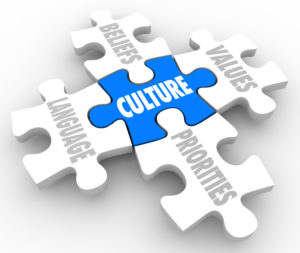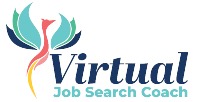Informational Interviews are a key strategy in a successful job search…. but what are they and what do you ask during one?
When you are looking for your next job opportunity, one of the best strategies I teach my clients is to request informational interviews with prospective employers. Informational interviews (also called Investigative interviews) will increase your success in finding a job faster, as well as ensuring you land a job that you will love with an employer you want to work for! Because who wants to be in a job you hate right?
Today I’m going to teach you the purpose of an informational interview, how to arrange them, and what questions to ask to investigate an occupation, uncover an industry or company culture, and to “fish” for potential job leads. Although nowadays there is a great deal of information that can be sourced from the internet, websites, social and news media, nothing compares to the insights, facts, and opportunities gained from meeting the people who actually work in the industry or the positions that you are considering or seeking. This is where informational interviews come in.
The purpose of an informational interview is to obtain vital information to help in your decision-making for a potential career, job, or industry change and when considering potential employer and industry targets during a general job search. It’s an opportunity where YOU get to be the interviewer. It also provides an avenue to develop your network, build rapport with new contacts, and potentially, your future employer.
There are several ways to arrange an informational interview, but I’m going to give you 3 simple steps:

1) Identify the Industry Professionals You Want to Meet With – This step starts with researching the industry and companies within your target industry. You want to discover a professional that is either in the role you are interested in or someone senior to that role who can provide useful information about the industry, company and your targeted role(s).
There are several methods to find that target professional such as: LinkedIn, contacting the company directly and asking for the name and contact information for that job title, gathering information through media, organizational charts, social media, company websites, and asking for referrals from your own personal networks (friends, family, neighbours, acquaintances), etc.

2) Request to Meet With the Industry Professional – You can send them an email, leave a voicemail or call them directly introducing yourself and requesting to meet with them (for no more than 30 minutes of their time) for an informational interview. Arrange a convenient time that suits them, respect their time and stick to less than 30 minutes unless they offer to talk longer, and make sure to arrive prepared with appropriate questions. If you like, tell them you will bring the coffees and ask what their favourite coffee/tea drink is.
You DO NOT want to say you are looking for work or a job! – It’s the kiss of death! You need to explain that you would like to learn more about their industry from a seasoned professional (if appropriate – because you are considering a career change). Your goal is to seek information and potential opportunities and build a relationship with your new connection! If you were referred to the individual by a friend, neighbour, etc. – then it is fitting to open the conversation by saying you were referred to them by “________”. Most people will be naturally more open and receptive if they think someone referred them personally or specifically.
Here are some examples of how to open the conversation to request an informational interview:
- “I was given your name by _______ who thought you could put me in touch with someone in the _____ field who could answer a few questions for me.”
- “I am an experienced _______ and am considering a career change into the field of ________. I have a few questions about the industry you are in and would like to seek some advice from a seasoned professional such as yourself. Would you be able to meet/speak with me for 15-20 minutes to answer some questions?”
- “Due to recent downsizing, I find myself without work for the first time in 15 years. As I feel a little out of touch I would appreciate 15-20 minutes of your time to answer a few questions I have. _______ suggested you’d have the most valuable information that could assist me. Do you have time on Tuesday or Thursday of next week?”
- I think you may be able to help me. I was given your name by _______ as I am seeking employment like that which I was doing in the (name sector)
You want to have approximately 10 to 12 questions prepared for your informational interview, and to take notes, or ask permission to record the conversation. Ask the industry professional probing questions, listen for pain points, indicators of trends, and insights (such as upcoming company projects). You want to uncover what I call TOPP issues (Trends, Opportunities, Problems, and Projects).

Here are some questions to ask when approaching a potential employer, a person working in the sector, or in a specific position to seek information about the industry, the company, job prospects, etc. These are select questions to ask which are appropriate based on your situation and your target to investigate the specific job opportunity or company culture. Questions to Uncover Details about a Specific Job Opportunity or Investigate an Occupation:
- How did you get into this job/occupation?
- What does it take to enter this field of work?
- What particular degrees, schooling or training is required?
- What characteristics work best for this type of position?
- What skills are key to success in this role?
- Are there any special problems or circumstances a person should be aware of when considering this job/occupation?
- What are the major frustrations or most challenging aspect in this job/occupation? What advice can you give?
- Is the occupation growing? How would you paint the future outlook?
- How should I approach my job hunt? Are there any specific companies you know of that are hiring?
- May I contact you if I need further information? Do you prefer phone contact, email or should I make an appointment?
Questions to Uncover the Culture of a Company:
- What are the organization’s priorities for the next couple of years?
- How are decisions made (in this organization, or department/division)? How are they communicated to the staff?
 What opportunities exist for advancement or change of jobs within your organization?
What opportunities exist for advancement or change of jobs within your organization?- What is the philosophy or the major values, and strengths of this organization?
- How would you describe the morale of the people working here?
- Does the organization emphasize working in teams?
- Do you like working here? Do you feel employees are respected for their ideas?
- How do people from different departments interact?
- How do people get promoted here?
- Do you feel that the company functions in the way its mission statement describes?
Be creative and resourceful and examine the information you have collected…. ask yourself “Is there a niche or problem that doesn’t seem to be addressed at present? (that I could fill/resolve)” – this can become your golden ticket for getting your foot in the door with this company.
 3) Follow Up With a “Thank-You” Letter or Email – When people have provided you with information, and their time always follow up with a “thank-you” letter or email message. Not only does this extend appreciation, it demonstrates the type of employee you would make, and allows for a response from them with added information, ideas, or contact names. Only attach your resume when you feel it is appropriate to do so.
3) Follow Up With a “Thank-You” Letter or Email – When people have provided you with information, and their time always follow up with a “thank-you” letter or email message. Not only does this extend appreciation, it demonstrates the type of employee you would make, and allows for a response from them with added information, ideas, or contact names. Only attach your resume when you feel it is appropriate to do so.
What you’ve learned here is just the tip of the iceberg when it comes to job search strategies, career development, and interview tips. To learn more, check out my YouTube channel (VirtualJobSearchCoach), where I post new content every week to help job seekers like you, determine, pursue, and land their dream job!
If you would like one-to-one coaching to equip you with the confidence, necessary tools, critical knowledge, and strategies to find and land your ideal job – then let’s talk! You can book a complimentary 15 minute discover call directly in my calendar at https://calendly.com/virtualstacey and let’s chat about how I can help you fast-track your job search success.


